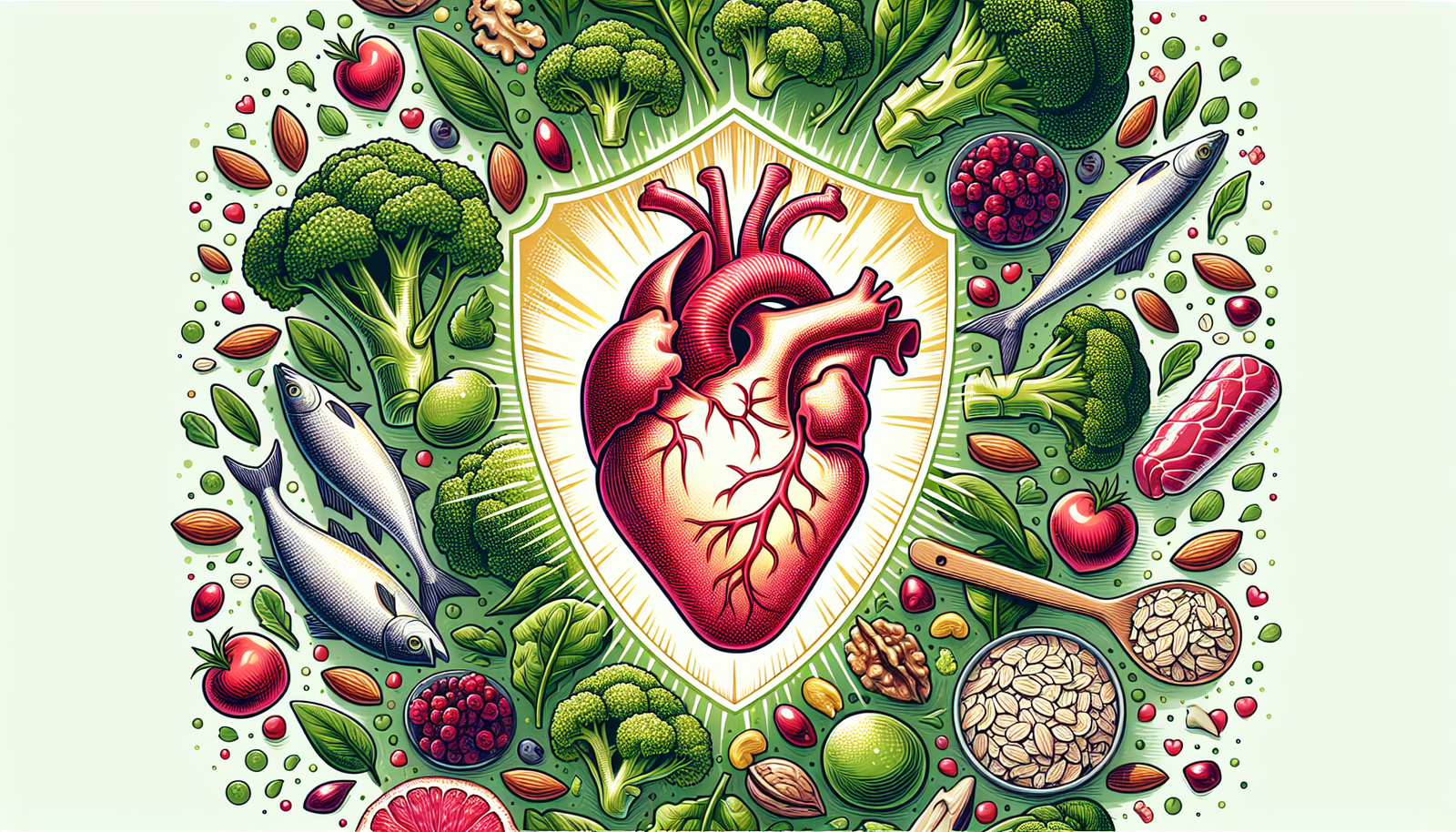Natural Supplements for Cardiovascular Health
Natural Supplements for Cardiovascular Health
Understanding Cardiovascular Health
Cardiovascular health refers to the well-being of the heart and blood vessels. Poor cardiovascular health can lead to conditions such as heart disease, hypertension, and stroke. Maintaining cardiovascular health involves a combination of a balanced diet, regular exercise, and in some cases, supplementation. Natural supplements can play a significant role in supporting heart health.
Importance of Omega-3 Fatty Acids
Sources and Benefits
Omega-3 fatty acids, primarily found in fish oil, flaxseed, and walnuts, are essential for cardiovascular health. They possess anti-inflammatory properties that can lower triglyceride levels and reduce blood pressure. Consuming omega-3s can also improve endothelial function and support overall heart health.
Recommended Dosage
The American Heart Association recommends eating fatty fish at least twice a week or considering an omega-3 supplement that provides 1000mg of EPA and DHA combined per day for optimal heart health.
Coenzyme Q10: The Heart’s Energy Booster
Understanding CoQ10
Coenzyme Q10 (CoQ10) is a natural antioxidant found in cells that plays a crucial role in energy production. The heart has a high energy demand, so maintaining adequate CoQ10 levels is vital for cardiovascular function.
Health Benefits
Research suggests that CoQ10 supplementation can improve heart function, reduce blood pressure, and lower risk factors associated with heart disease. Individuals taking statins may also benefit, as these medications can deplete CoQ10 levels.
Dosage Recommendations
Typically, a daily dose of 100 to 200 mg is recommended, but individual needs may vary. It’s advisable to consult with a healthcare professional for personalized dosage.
Magnesium: The Mineral for Heart Health
Role of Magnesium
Magnesium is a critical mineral that helps regulate heart rhythms, control blood pressure, and promote overall vascular health. A deficiency in magnesium can contribute to heart disease, hypertension, and arrhythmias.
Benefits
Studies suggest that magnesium supplementation can lower blood pressure and decrease the risk of cardiovascular disease. It also supports proper muscle function, including the heart muscle.
Daily Intake
For adults, the recommended dietary allowance (RDA) for magnesium is approximately 400-420 mg for men and 310-320 mg for women. Supplements may be beneficial for those who struggle to meet these requirements through diet alone.
Potassium: Balancing Body Electrolytes
Importance of Potassium
Potassium is another essential mineral that helps maintain proper electrical activity in the heart. It plays a vital role in regulating blood pressure by counteracting the effects of sodium.
Health Effects
Increased potassium intake is associated with lower blood pressure levels and reduced stroke risk. Healthy food sources include bananas, sweet potatoes, and spinach, but supplementation might be necessary for those not getting enough from their diet.
Recommended Dosage
The RDA for potassium is 2,500–3,000 mg per day for adults. However, excessive supplementation may lead to hyperkalemia and should be approached cautiously.
Flaxseed: A Rich Source of Lignans
Heart-Healthy Properties
Flaxseed is packed with alpha-linolenic acid (ALA), a type of omega-3 fatty acid, and lignans, which have antioxidant properties. These compounds can lower cholesterol and improve heart health.
Clinical Evidence
Studies have shown that flaxseed consumption can reduce total cholesterol and LDL cholesterol levels, thereby decreasing the risk of cardiovascular events.
Incorporation and Dosage
Ground flaxseed can easily be added to smoothies, cereal, or yogurt. A typical serving size is one tablespoon of ground flaxseed per day.
Garlic: The Heart’s Natural Ally
Cardiovascular Benefits
Garlic has been used for centuries in traditional medicine, particularly due to its cardiovascular benefits. It contains allicin, which has a potent ability to lower blood pressure and improve cholesterol levels.
Research Insights
Clinical studies indicate that garlic supplements can lead to significant reductions in systolic and diastolic blood pressure in hypertensive individuals. Additionally, garlic can support overall arterial health.
Recommended Dosage
A typical dose of garlic extract is 600-1200 mg per day, divided into multiple doses.
Hawthorn: The Heart Herb
Overview of Hawthorn
Hawthorn is a flowering plant whose berries, leaves, and flowers are used in herbal medicine. Its traditional use revolves around enhancing cardiovascular function and promoting heart health.
Clinical Application
Research supports hawthorn’s ability to improve heart function, particularly in individuals with congestive heart failure. It can increase blood flow to the heart and improve exercise tolerance.
Usage Recommendations
Hawthorn extricants vary widely in potency. A standard dose is typically between 160-180 mg taken three times daily.
Turmeric and Curcumin: Anti-inflammatory Power
The Role of Curcumin
Turmeric contains curcumin, which is well-known for its anti-inflammatory and antioxidant properties. Chronic inflammation is a significant contributor to heart disease.
Cardiovascular Affections
Studies show that curcumin can lower cholesterol levels, reduce arterial plaque, and enhance endothelial function, which can collectively improve cardiovascular disease outcomes.
Supplementation Guidelines
A daily dose of 500-2000 mg of curcumin is often recommended, but it should be taken with black pepper extract (piperine) to enhance absorption.
Resveratrol: The Red Wine Compound
Understanding Resveratrol
Resveratrol is found in red wine, berries, and grapes. It is reputed for its antioxidant properties and is often linked to the "French Paradox"—a phenomenon where French populations experience lower heart disease despite high saturated fat intake.
Benefits for the Heart
Resveratrol has been shown to improve endothelial function, lower blood pressure, and provide anti-inflammatory effects. These actions contribute to its ability to support cardiovascular health.
Typical Dosage
Resveratrol supplements usually range from 100 to 500 mg per day, but intake should be discussed with a healthcare provider, especially considering its interaction with medications.
Astaxanthin: The Carotenoid for Heart Health
Overview of Astaxanthin
Astaxanthin is a carotenoid with potent antioxidant properties, found in algae and seafood. It is recognized for its role in reducing oxidative stress, which can lead to cardiovascular troubles.
Health Benefits
Clinical studies suggest that astaxanthin supplementation may improve blood lipid profiles, reduce inflammation, and enhance cardiovascular function.
Recommended Intake
A typical astaxanthin supplement contains about 4-12 mg per day, although specific needs can vary based on individual health status.
Green Tea Extract: The Antioxidant Powerhouse
Benefits of Green Tea
Green tea is rich in polyphenols, particularly epigallocatechin gallate (EGCG), which has been shown to support cardiovascular health. Regular green tea consumption is associated with improved cholesterol levels and lower blood pressure.
Research Findings
Studies indicate that green tea extract can reduce overall cardiovascular disease risk and offers protective benefits against heart injuries.
Suggested Dosage
Green tea extract supplements commonly provide 250-500 mg of EGCG daily.
L-Carnitine: The Energy Metabolizer
Role of L-Carnitine
L-Carnitine is an amino acid derivative that plays a crucial role in fat metabolism, helping to transport fatty acids into mitochondria for energy production. Its benefits extend to cardiovascular health, particularly in heart disease patients.
Clinical Benefits
Research has found that L-carnitine can improve exercise capacity, reduce symptoms in patients with heart issues, and potentially lower the risk of heart attacks.
Daily Recommendations
A common dose for L-carnitine supplementation ranges from 500–2000 mg per day, divided into two or three doses.
Maintain Caution with Natural Supplements
While natural supplements can enhance cardiovascular health, it’s vital to approach them with caution. Supplements can interact with medications and may not be suitable for everyone, particularly those with underlying health conditions.
It is essential to consult with healthcare providers before starting any supplementation regimen. Regular monitoring of heart health and adjustments in lifestyle will also contribute significantly to cardiovascular well-being.
Conclusion (Not Included)
This information encompasses the essential natural supplements that can support cardiovascular health. Choosing the right supplements and properly integrating them into a health regimen can greatly reduce risks and enhance heart function, promoting a healthier life overall.







